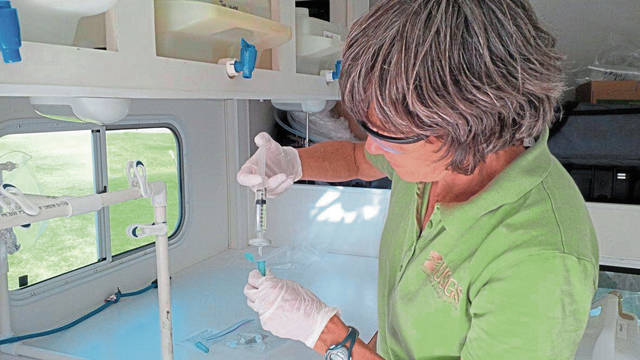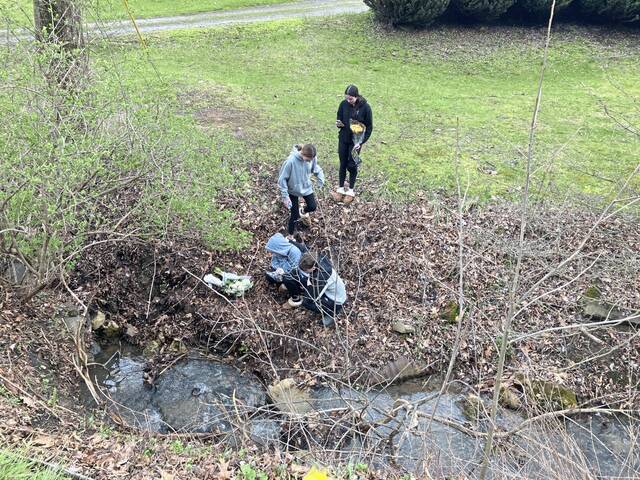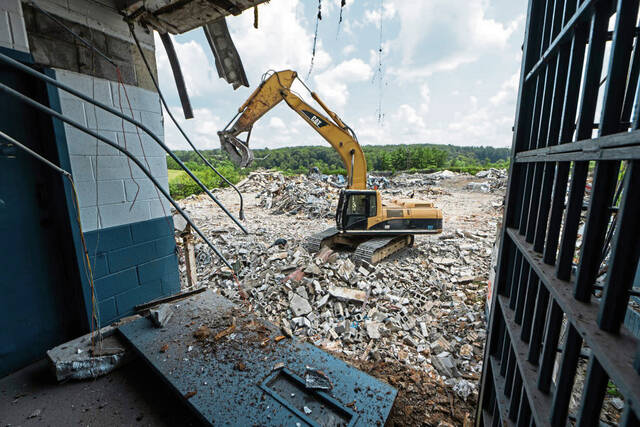Westmoreland County could become the first one in Western Pennsylvania to have large-scale, baseline testing done on the water quality of private wells by the federal government.
The Westmoreland Conservation District is applying for a $250,000 grant to pay the U.S. Geological Survey to do baseline testing on 40 to 70 private wells across the county.
Currently, testing of private wells is not required, regulated or tracked by government agencies in Pennsylvania.
“By far, most people do not have their well water tested,” said Rob Cronauer, the conservation district’s watershed program manager. “That’s a big reason why this is important. We want to see what’s out there.”
He estimates there are thousands of private wells in Westmoreland County, but fewer than 10,000.
Little information exists about the quality or safety of the water they produce.
The state’s Baseline Water Quality Program began in 2013 with money from the Marcellus Legacy Fund. The fund gets its money from gas-well impact fees that drillers pay across the state. To date, the program has received 28 applications for funding, according to Michael Gerber, spokesman for the state Department of Community and Economic Development.
Last year , five counties in northcentral and northeastern Pennsylvania received funding: Lycoming, Wayne, Pike, Clinton and Potter.
Washington Township Supervisor Rich Hill thinks the testing is a good thing.
“Anytime you can have something to give you a baseline for future studies and testing for something like water, that will only help future residents and populations down the road,” he said.
To pick wells, the USGS would lay a grid over the county map with survey points, limiting them to rural areas where there is no public water.
The USGS would contact property owners to see whether they want their wells tested and whether the wells are eligible.
“The need has always been there, whether it’s Marcellus shale, agriculture, coal mining or whatever land use you want to talk about,” said Jeff Chaplin, a USGS supervisory hydrologist in New Cumberland.
Tests in other parts of the state have revealed naturally occurring contaminants such as radon that are unrelated to Marcellus shale gas development. In some cases, they found arsenic and metals such as iron that exceeded drinking-water standards, according to Chaplin.
USGS found a “handful of cases” where there were hits for volatile organic compounds, with the contamination “usually related to a well next to a fuel shed and the leak of fuel,” according to Chaplin.
The biggest concern is bacteria, which in some counties have been found in half of the wells. Some types of bacteria, such as E. coli and coliform, are more worrisome and have been found in a small percentage of wells, Chaplin said.
USGS found methane in wells in Wayne and Pike counties, which have no gas development.
“But we found similar levels where there is unconventional (fracking) gas development,” he said. “We can’t say the gas industry is causing elevated methane levels in the wells.”
The water tests, with a value of at least $2,000 for a single well, would check for a wide range of chemicals and pollutants.
“For a baseline study, we are casting a wide net,” Chaplin said.








